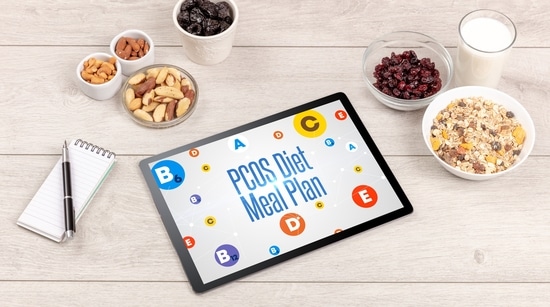PCOS diet: Common foods that may worsen your symptoms
An estimated one in five (20%) Indian women suffer from PCOS. As per WHO, up to 70% of cases are undiagnosed.
PCOS is a significant public health problem and is one of the commonest hormonal disturbances affecting women of reproductive age. An estimated one in five (20%) Indian women suffer from PCOS. As per WHO, up to 70% of cases are undiagnosed. PCOS can also cause anovulation and is a leading cause of infertility. While there is no cure for PCOS, there are a number of treatments available that can help in improving individual symptoms. Lifestyle and dietary modification with main focus on eating a balanced diet, exercise and losing excess fat can help with improving PCOS symptoms. However, Eating in a way that supports PCOS and doesn't trigger PCOS symptoms comes with several challenges. Let's dive into what those foods are and how you can stay away from them.

Here are five foods that trigger PCOS symptoms
1) Refined foods
Refined foods are devoid of fiber and nutrients. This can lead to insulin resistance, fat gain and increased inflammation, a common factor in PCOS. Maida, sabudana, semolina (sooji), chips, wafers, cookies, biscuits, breads, toast, pav, pasta, noodles, muffins, cakes are just a few examples of refined foods. Alternative to this is to opt for lentil/ beans based pasta/ noodles, choosing fresh fruits and nuts as snacks over chips and cookies, celebrating special occasions by indulging in some form of sports/ hobby/ spa or arranging potluck dinner with healthy options.
2) Fat loaded foods
Not all fats are bad. While it's true that some fats can contribute to PCOS symptoms, some essential fats coming from nuts and seeds are essential for overall health and can even help manage the condition. Fats that can trigger PCOS symptoms are saturated and trans fats found in cheese, desserts, processed foods, red meat, and full-fat dairy products. Women with PCOS should incorporate sources of healthy fats into their meals to support hormonal balance and reduce inflammation. And at the same time, they should be limiting unhealthy fats to minimize their negative impact on PCOS symptoms. Preferred Cooking oils should be the one that contains higher amounts of Monounsaturated fatty acids like Groundnut oil, sesame oil, olive oil, mustard oil vs sunflower, safflower or palm oil.
3) Liquid calories
It’s obvious to think juice and smoothies are healthy, but some pre-bottled options can contain over 15 grams of sugar and rapidly leads to blood sugar spikes as most liquid beverages have no/ less fiber. Liquid calories can be unknowingly adding to over 500 kilocalories in your daily diet. It comes from sugary drinks like Soda, juice, energy drinks, sweetened tea, sports drinks, Alcohol, cocktails, mocktails, High-calorie smoothies. Better alternatives to this is to opt for water, unsweetened herbal teas, low fat milk, fresh homemade smoothies, sattu, buttermilk. Remember, While liquid calories should be consumed in moderation, they are not entirely off-limits. The key is balance and choosing healthier options.
4) Gluten
If we compare two women of the same weight, women with PCOS will have higher levels of inflammation as compared to other women of the same weight. And more and more research studies are suggesting that daily consumption of wheat and gluten products can worsen chronic inflammation. This doesn't mean women with PCOS should completely avoid gluten. Restricting wheat to just one meal a day also helps in decreasing inflammation. Women with PCOS may benefit from adding more millets and pulses in one meal of the day. Alternating millets and wheat during two major meals of the day is more sustainable and easy to follow.
5) High glycemic index foods
High glycemic index (GI) foods are those that cause rapid spikes in blood sugar levels. For women with PCOS, this can be particularly problematic. Fluctuations in blood sugar levels can affect hormone production, exacerbating PCOS symptoms like irregular periods and acne. Most foods with high GI are unhealthy and should be avoided completely like breads, white rice, breakfast cereals, fries, chips and sweetened/ flavored beverages. However, there are some foods which are rich in nutrients yet have high GI. Examples of such foods are Potatoes, sweet potatoes, corn, kiwi, banana, and grapes. Rather than avoiding nutrient rich high GI foods completely, it's better to consume these foods occasionally by combining it with low GI foods beans, lentils, nuts, seeds, vegetables to prevent blood sugar spike. To conclude, focus on a diet rich in whole grains, lean proteins, healthy fats, and plenty of fruits and vegetables for significantly improving PCOS symptoms. There is currently no cure for PCOS, but lifestyle modification can alleviate PCOS symptoms.






